- Home
- Stephanie Bond
3 Men and a Body Page 16
3 Men and a Body Read online
Page 16
He rode to Chance’s, and when his friend opened the door, he gave him a high five.
“Ready to win tonight, my man?”
“Yeah,” Wesley said, cracking his knuckles. “I’m feeling it.”
Chance was fully dressed for a change, with homemade porn on the TV, but no drug runners and no naked women lying around. When it came to money, Chance was usually all business. His sobriety alone told Wesley how much he wanted half of that twenty-grand winning pot tonight.
To warm up, Wesley played Poker Smash until it was time to leave for the card game. It was being held in a midtown nightclub that had closed down in preparation for the wrecking ball in a few weeks’ time.
When they walked inside the vacant, gutted building, a man named Grimes welcomed them and counted the five-thousand-dollar chair fee that Chance handed over in hundreds, as requested. Another guy patted them down. When all was in order, Wesley and Chance were led through another door. Several sets of tables and chairs were arranged on what had once been a dance floor. Many players were already seated, the cigarette smoke trailing thick into the air. Wesley noticed a couple of familiar faces from previous games. When a case of nerves threatened to take hold, he chomped an OxyContin and relaxed. Within seconds, a feeling of euphoria began to descend. Everything seemed rosy and his confidence level soared.
The games of Texas Hold ’Em poker began, and Wesley was hot from the start. It took a couple of hours, but one by one he eliminated every player at his table to win a spot at the final table. He was already guaranteed the entry fee back. Anything else he won he would split with Chance, fifty-fifty. After a short break, the final five players took their seats. Under the table, Wesley’s leg began to bounce, a spontaneous and unwelcome tic. He crossed his ankles and lit a cigarette in an attempt to get it under control.
For the first few hands, his two pocket cards were crap. He folded early, not yet ready to bluff. But when Chance threw him a look of exasperation, Wesley decided if he was going to lose, he would do it with style.
In the next round he was dealt the two of clubs and the eight of diamonds for his pocket cards—a truly shitty hand. He bet high, hoping to scare the others into thinking he had something. Two folded, leaving him and two other guys playing the hand—a fat, squishy character with moles on his eyelids, and a clean-cut fellow who chewed gum like a girl. But Wesley liked gum chewers. They had more tells than a four-year-old. He put Squishy-Moley with at least one face card, and Chewy with a low pair.
The first three community cards, the flop, were dealt faceup: the three of clubs, the four of clubs, and the eight of spades. The next two community cards, the turn card and the river card, were dealt facedown. With a possible straight flush going and now a pair with the flop cards, Wesley slow-bid the hand until everyone had raised twice.
The dealer flipped the turn card, a six of diamonds. Chewy folded. Squishy-Moley raised. Still working a straight, Wesley called the bet. The river card was the eight of hearts, giving Wesley three of a kind. Not bad, but the other guy could have the straight. Squishy-Moley hesitated, then raised. Wesley called and raised. Squishy called, then revealed his pocket cards—a pair of fours. With the community cards, he had three fours. Wesley won the hand with his three eights, and set the tone for the next two hours of play. One by one, the players fell, leaving Wesley and Squishy-Moley to square off.
Chance was so excited he could barely watch. Wesley’s leg was jumping badly now, so he asked for a bathroom break and chewed another pill. By the time he emerged, his leg was still and he was feeling good again. This was the kind of local exposure he needed to build his reputation as a solid card player and make his way to a big regional game, leading up to a tournament sanctioned by the World Series of Poker.
He lowered himself into the chair and nodded at Squishy-Moley, whose real name, he discovered, was Andy. Andy had that hangdog jowly look that was hard to read—his eyes were hooded and he rarely glanced up from his cards. But that was a tell, too, because it meant he usually bet on the basis of his own hand rather than trying to figure out what the other guy was holding.
They played a few rounds, passing chips back and forth across the table. Then slowly, Wesley began to get the upper hand. And at last, he got gorgeous pocket cards: a pair of aces, clubs and hearts. Still, he bet conservatively, because he’d seen plenty of ace pairs beaten with a low three of a kind. Andy didn’t seem overly excited about his pocket cards, either.
The flop was the queen of hearts, the seven of hearts and the four of clubs. The best Andy could have at this point was three of a kind, but Andy was probably thinking the same thing about Wesley’s hand, and he was wrong. Wesley raised twice. The turn card was another queen, which stung. If Andy held queens, he was looking at four of a kind, and three of a kind was still a winner over Wesley’s pair of aces. The river card was a ten of hearts, which didn’t help. Wesley kept raising, though, and just when he thought Andy would fold, the guy pushed his chips to the center of the table.
“All in.”
Wesley hesitated. He didn’t want to be one of those chumps who bet the farm and lost it on a pair of aces—that was a beginner’s mistake. If he folded, he still had time to make it up, and he’d been getting good cards all night.
On the other hand, this could be the end of his streak, the last decent pocket cards he’d get all night. And he didn’t want to be the chump who folded with a pair of aces to a guy who held squat. Thirty seconds went by, then a minute. Under the table his knee started jumping again, and to his embarrassment, sweat dripped off the end of his nose onto the table.
The dealer cleared his throat, a warning to place a bet or fold by default.
“Call,” Wesley said, pushing the better portion of his chips in to match the other man’s bet. “What d’ya have?”
His opponent rolled his eyes upward and Wesley felt a flash of panic. Then Andy sighed and tossed down his cards. A three and a nine—garbage.
Chance came off his chair, whooping with joy. Applause broke out and players pumped Wesley’s hand in congratulations. His arm hurt like hell, but he didn’t mind. Grimes carried the till to Wesley’s table and started counting out the twenty grand in bundles of hundreds. Between the Oxy and the win, Wesley felt as if he were floating. With his half of the pot he could get The Carver and Father Thom off his back for a while, and give Carlotta some money for bills. This time he wasn’t going to blow the cash like he had before.
For once, he’d be a hero.
A commotion sounded at the door. “Everybody, hands in the air!”
Wesley jerked his head around to see three hooded men standing in a semicircle, handguns extended. One guy shot into the ceiling, sending drywall raining down. “I said hands in the air!”
Wesley obeyed, as did everyone else in the room. While two of the men kept their guns trained on everyone, the third guy walked up to Wes’s table and stuffed the cash into a duffel bag. Twenty guys had paid five grand apiece—not a bad take for a few minutes’ work. Wesley set his jaw to keep from crying at the sight of his prize money disappearing. He’d been so damn close.
While the masked man crammed the money in the bag, he looked up at Wesley with mockery in his eyes, then zipped the duffel closed and backed out of the room.
The other two gunmen waited a few seconds, then backed out, too. Their pounding footsteps echoed in the empty building, then the front door slammed.
Nobody moved for a few seconds. And nobody dared call the police because the impromptu card house was completely illegal. It was exactly what the gunmen had been counting on. Grimes threw a few chairs and cursed a blue streak, but they’d all been had. It wasn’t the first time a card club had been robbed. They were lucky everyone’s wallets hadn’t been stolen, as well.
Worse, Wesley thought there was something familiar about the hooded gunman who’d handled the money. The way he stood, the bulk of his shoulders…the mockery in his eyes as he’d singled out Wesley.
It was Leonard
, he was almost positive. E.’s boyfriend, Chance’s drug runner. The man had been listening when Chance had told Wesley about the card game. And Wesley wouldn’t put anything past the guy.
Anger burned a hole in Wesley’s stomach. Leonard had everything that Wesley wanted—including E.—for now. But Wesley would find a way to even the score.
24
“H annah, hi, it’s Carlotta. I just called to check in.” She laughed gaily into the receiver. “Oh, I’ve got the funniest thing to tell you. Did you know that when Detective Jack Terry was here, I caught him watching the Gilmore Girls? I kid you not. The man isn’t nearly as macho as he likes to pretend. Call me on my cell when you want to catch up.”
Carlotta put down the phone and sighed. Or make up. She knew Hannah was upset over her taking the road trip with Coop, but Carlotta hadn’t thought her friend would hold it against her for this long. She’d always assumed Hannah’s comments about Coop were just indiscriminate flirting. But maybe Hannah really cared about him.
Carlotta picked herself up from the bedroom floor. If her friend was in love with Coop, all the more reason for Carlotta not to get involved with him. He deserved someone who could give her entire heart.
In Hannah’s case, if she really loved a man, she’d probably be willing to cut out and hand over any body part he wanted.
Carlotta left her bedroom, conscious of the quiet hush in the house. It was nice for Wesley to have someplace to be every morning, she conceded, and he seemed content with his community service job. Every day he brought home a stack of manuals about things that would make her head explode. But without him bustling around the kitchen and playing his music at deafening levels, she felt restless in the house alone, bored and claustrophobic.
And since Kiki Deerling’s memorial service the previous day, she’d been nursing a feeling of discontent. Granted, her disappointment was probably rooted in the “lifting of the veil” on the fantasy of celebritydom that the whole experience had produced. But this lingering sense of grief seemed more…pervasive.
She glanced down the hall to the closed door of her parents’ room and sighed. And then, of course, there were her parents.
Always, her parents.
Giving in to the pull, she went to the door and twisted the knob. The door had swollen in the heat, so she had to give it a shove with her good shoulder. When it creaked open she slid back in time ten years—as she always did.
Their bedroom was much the same as Randolph and Valerie had left it, only without some of the photographs and other personal items the police had taken after the pair had gone missing. The matching furniture—bed, dresser, wardrobe and two chests—that had sat in one corner of their enormous bedroom in the house they’d lost, overwhelmed this modest-size master bedroom. The oversize pieces made it feel as if the walls were closing in.
Her mother had hated living here. She’d hated the small rooms in the cramped town house on the unimpressive street in the inconsequential neighborhood. She’d missed lunch at the club and afternoons at the spa, personal shoppers and domestic help. Valerie had rarely talked about her childhood, because her parents had died when she was young, but Carlotta had the impression that her mother had grown up very poor. Perhaps that was the reason she’d affixed herself to Randolph Wren and the luxurious lifestyle he had provided, why she had chosen to go with him on the lam rather than stay behind with her children and struggle to make ends meet.
Carlotta couldn’t say her parents had been in love. What they’d had was so much more unhealthy. It was an obsession for each other that was almost immature in its intensity, a possessive, jealous bond that left no room for anything or anyone else…at least not to her mother’s knowledge.
The air in the room was stale, but still reeked of them both, if that was possible. The box of cigars on her father’s nightstand had long since dried out, but the scent of tobacco lingered. Her mother’s perfumes had turned to mostly alcohol, yellowing the glass of the fancy bottles. Her father’s ties still hung over his valet stand. Her mother’s flowered silk robe was draped over the back of the chair in front of her dressing table. A layer of dust made everything fuzzy and slightly out of focus, like an old photo. Wesley had come in occasionally over the years and dusted, but Carlotta had always refused. She’d spent less than twenty minutes in this room since her parents had left.
Now she went to their bathroom and removed a folded washcloth from the closet, wetting it with water from the faucet that ran rusty before it ran clear. Then she backtracked and began cleaning everything. One by one, she picked up items and carefully removed the dust and built-up grime. The job somehow seemed more purposeful now that she knew they were both still alive. She picked up a photo of her parents that had been taken at some gala event. Her father was in a tux, her mother in a long white, sequined gown. They looked glorious together, tanned and fit, smiling.
But her mother’s eyes looked glassy, the telltale sign of a well-functioning alcoholic. Valerie had always been fond of happy hour. But after they’d lost the Buckhead house, her Bloody Mary breakfast extended to a two-martini lunch, which stretched into an afternoon nip that morphed into the cocktail hour which held her over until after-dinner drinks and wrapped up with a nightcap.
Randolph had indicated that her mother was still drinking “on and off.” Had Valerie tried rehab? Entered a twelve-step program? If so, she hadn’t yet gotten to the part about seeking forgiveness from those you’ve wronged. Carlotta lifted her mother’s robe to her face and inhaled the scent of dust and age and the merest hint of ylang-ylang. Tears filled her eyes, but as always, she was hard-pressed to attach any one emotion to her parents—anger, fear, frustration, love, hate, betrayal. She still felt all those things.
But she was so profoundly grateful that they were still alive.
By the time she finished cleaning the room, she felt better…and hungry. For lunch she heated a can of soup, grabbed some mini carrot sticks from the veggie drawer, and sat down in front of the TV to relax while she ate. She channel surfed, stopping on an all-news network showing the crypt in which Kiki Deerling’s body had been placed, in her family’s cemetery plot.
The white stone structure sat on a raised platform, ornately carved with birds and flowers, surrounded by a tall, black, wrought-iron fence. Fresh flowers lined the fence in tribute. Carlotta understood that crypts were a comfort to family members who couldn’t bear the thought of putting their loved one in the ground, and in this case, it was grander and safer than a simple headstone, considering how many and what type of people would likely visit the grave site.
“Kiki Deerling’s ex-boyfriend, Matt Pearson, is said to be taking the starlet’s death particularly hard,” the news announcer said. “Close friends say he is devastated, which seemed evident when Pearson broke down yesterday while singing at Deerling’s funeral.”
Film of the funeral rolled, showing the young man stopping to compose himself before continuing, the image then switching to that of a white multistory building.
“Word is that Matt Pearson is holed up in this Buckhead hotel, grieving for Deerling. An unconfirmed report has Pearson on suicide watch. Even though a medical examiner ruled that Deerling’s death was caused by a severe asthma attack, rumors persist that the night she died, she was partying hard with Pearson, who has a history of substance abuse.”
Carlotta frowned, her mind churning as she changed the channel. Kiki Deerling was still everywhere. The local talk show Atlanta & Company was replaying the interview that Carlotta and Hannah had been watching live when Kiki promoted her camp for troubled teens. Carlotta studied the young woman’s throat. Because of the leopard-print scarf wrapped around her neck, Carlotta couldn’t tell if Kiki was wearing a necklace. At the end of the interview, Carlotta spotted a flash of gold, but it was still unidentifiable.
“This was Kiki Deerling’s last known interview,” host Holly Firfer said, then shook her head at her cohost. “I still can’t believe she’s gone. Just a few days ago, she was
sitting on this set talking to me, happy and laughing.”
Carlotta pursed her mouth and glanced at the clock. She could make it down to the affiliate studio before the show ended. Why not talk to one of the last people who’d talked to Kiki?
The cohost of Atlanta & Company was unmistakable in the lobby of the TV station; blond and bubbly, she walked with the same energy that came across on-screen. Carlotta watched as the receptionist stopped her and pointed in Carlotta’s direction. Carlotta stood and smiled as the woman approached.
“Hello, I’m Holly Firfer.”
“I’m Carlotta Wren, a big fan of your show.”
“Thank you.”
“And…I was wondering if I could have five minutes of your time.”
“What’s this about?” Holly asked.
Carlotta hesitated. “This is a little awkward, but I’m investigating the death of Kiki Deerling. I know you were one of the last people to talk with her. I wondered if you could tell me if she was wearing a necklace when you interviewed her.”
Holly looked dubious. “You’re a police officer?”
“No. I work for the morgue. I believe the proper term is ‘body hauler.’ I went to Boca Raton to pick up her remains and brought them back to Atlanta.” Carlotta showed her the morgue ID she used when she worked with Coop.
The blonde winced, but nodded. “What’s this about a necklace?”
“We’re trying to verify that all of Ms. Deerling’s personal effects are accounted for. It’s been brought to our attention that she might have been wearing a necklace when she died. Since you talked to her only a few hours earlier that day, I wondered if you remembered seeing one.”
“I don’t know.”

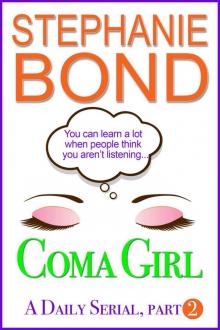 Coma Girl: part 2
Coma Girl: part 2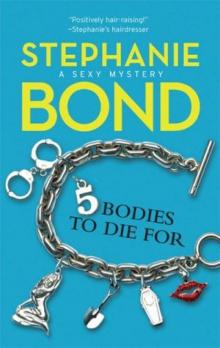 5 Bodies to Die For
5 Bodies to Die For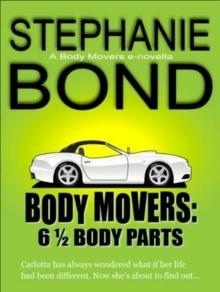 6 1/2 Body Parts
6 1/2 Body Parts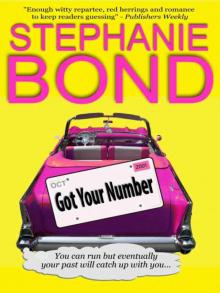 Got Your Number ((a humorous romantic mystery))
Got Your Number ((a humorous romantic mystery)) Baby, Hold On
Baby, Hold On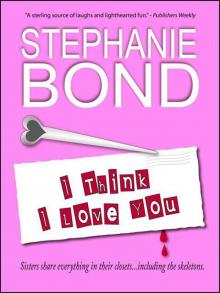 I Think I Love You
I Think I Love You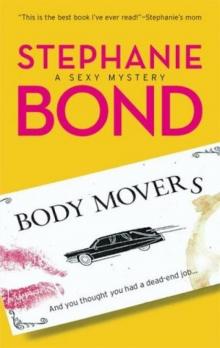 Body Movers
Body Movers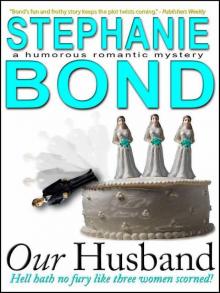 Our Husband
Our Husband Once Upon a Valentine
Once Upon a Valentine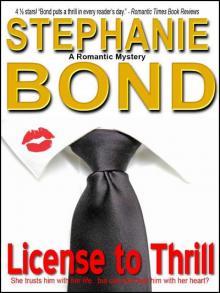 License to Thrill (a romantic mystery)
License to Thrill (a romantic mystery)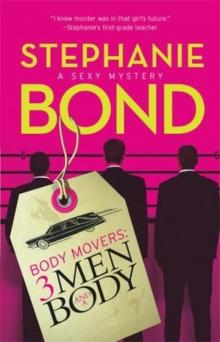 3 Men and a Body
3 Men and a Body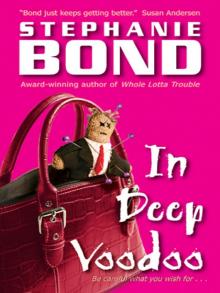 In Deep Voodoo
In Deep Voodoo Entice Me Box Set: The Truth About Shoes and MenCover MeMy Favorite Mistake
Entice Me Box Set: The Truth About Shoes and MenCover MeMy Favorite Mistake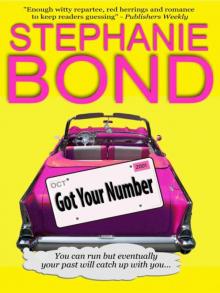 Got Your Number
Got Your Number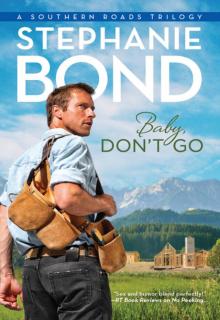 Baby, Don't Go
Baby, Don't Go Sand, Sun...Seduction!
Sand, Sun...Seduction!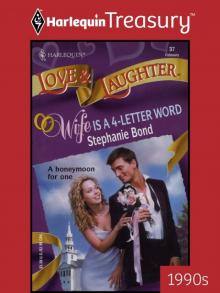 Wife Is A 4-Letter Word
Wife Is A 4-Letter Word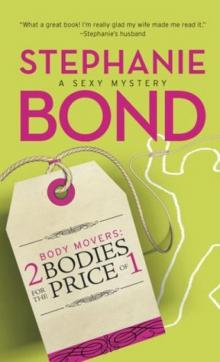 2 Bodies for the Price of 1
2 Bodies for the Price of 1 Baby, Drive South
Baby, Drive South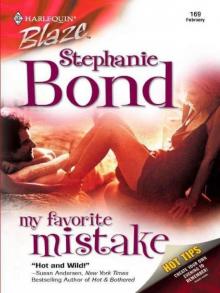 My Favorite Mistake
My Favorite Mistake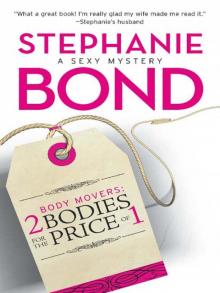 Body Movers: 2 Bodies for the Price of 1
Body Movers: 2 Bodies for the Price of 1 Coma Girl: part 1
Coma Girl: part 1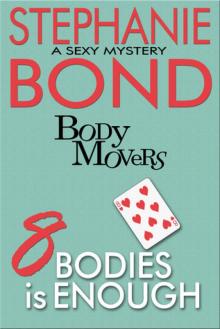 8 Bodies Is Enough
8 Bodies Is Enough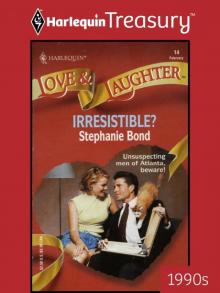 Irresistible?
Irresistible?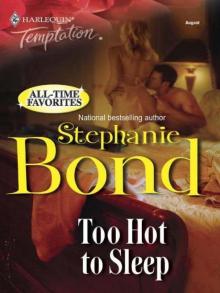 Too hot to sleep
Too hot to sleep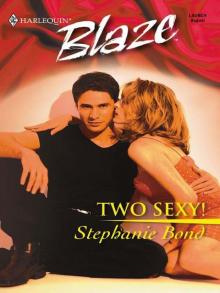 Two Sexy!
Two Sexy!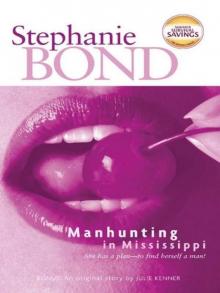 Manhunting in Mississippi
Manhunting in Mississippi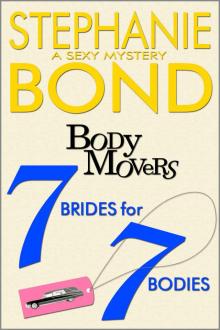 7 Brides for 7 Bodies
7 Brides for 7 Bodies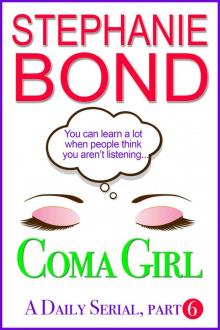 Coma Girl: Part 6 (Kindle Single)
Coma Girl: Part 6 (Kindle Single)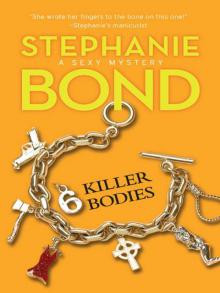 6 Killer Bodies
6 Killer Bodies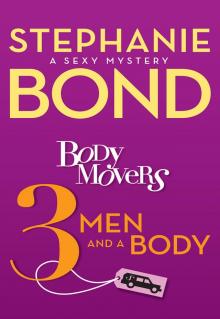 Body Movers: 3 Men and a Body
Body Movers: 3 Men and a Body Seeking Single Male
Seeking Single Male Love So Tender: Taking Care of BusinessPlay It Again, ElvisGood Luck Charm
Love So Tender: Taking Care of BusinessPlay It Again, ElvisGood Luck Charm Love Can Be Murder (boxed set of humorous mysteries)
Love Can Be Murder (boxed set of humorous mysteries)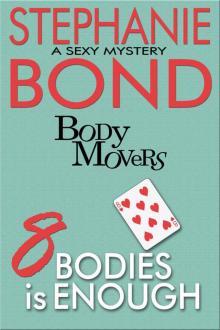 8 Bodies is Enough--for Amazon
8 Bodies is Enough--for Amazon Her Sexy Valentine
Her Sexy Valentine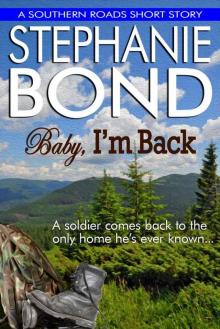 Baby, I'm Back (a Southern Roads short story)
Baby, I'm Back (a Southern Roads short story)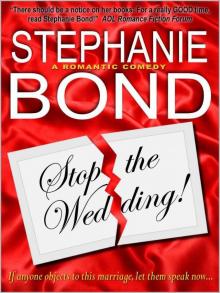 Stop the Wedding!
Stop the Wedding!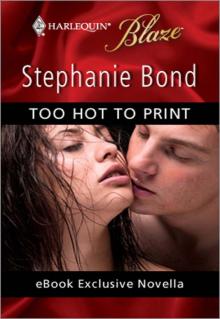 Too Hot to Print
Too Hot to Print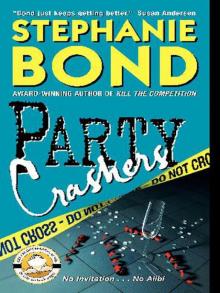 Party Crashers
Party Crashers Club Cupid
Club Cupid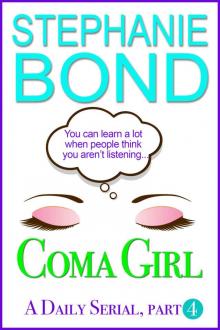 Coma Girl: Part 4 (Kindle Single)
Coma Girl: Part 4 (Kindle Single)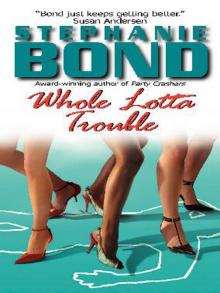 Whole Lotta Trouble
Whole Lotta Trouble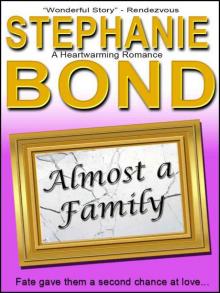 Almost a Family
Almost a Family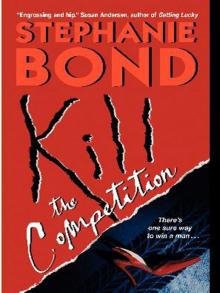 Kill the Competition
Kill the Competition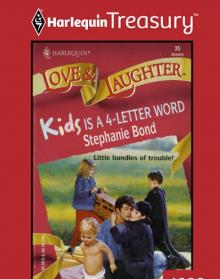 Kids Is A 4-Letter Word
Kids Is A 4-Letter Word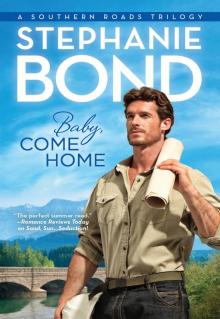 Baby, Come Home
Baby, Come Home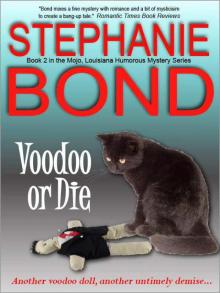 Voodoo or Die
Voodoo or Die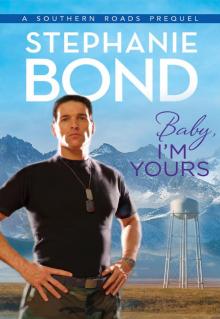 Baby, I’m Yours
Baby, I’m Yours Mad About You (boxed set of beloved romances)
Mad About You (boxed set of beloved romances)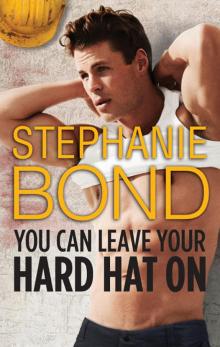 You Can Leave Your Hard Hat On
You Can Leave Your Hard Hat On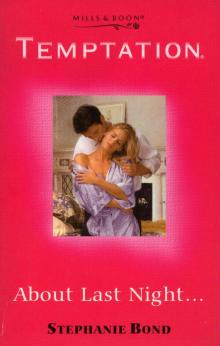 ABOUT LAST NIGHT
ABOUT LAST NIGHT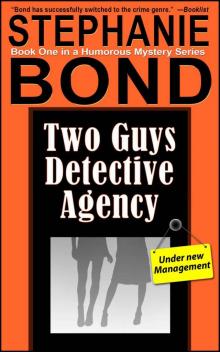 Two Guys Detective Agency (humorous mystery series--book 1)
Two Guys Detective Agency (humorous mystery series--book 1)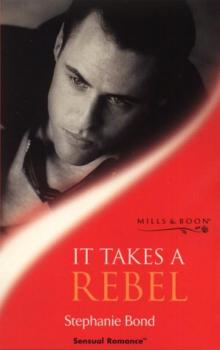 IT TAKES A REBEL
IT TAKES A REBEL Coma Girl: part 3 (Kindle Single)
Coma Girl: part 3 (Kindle Single)